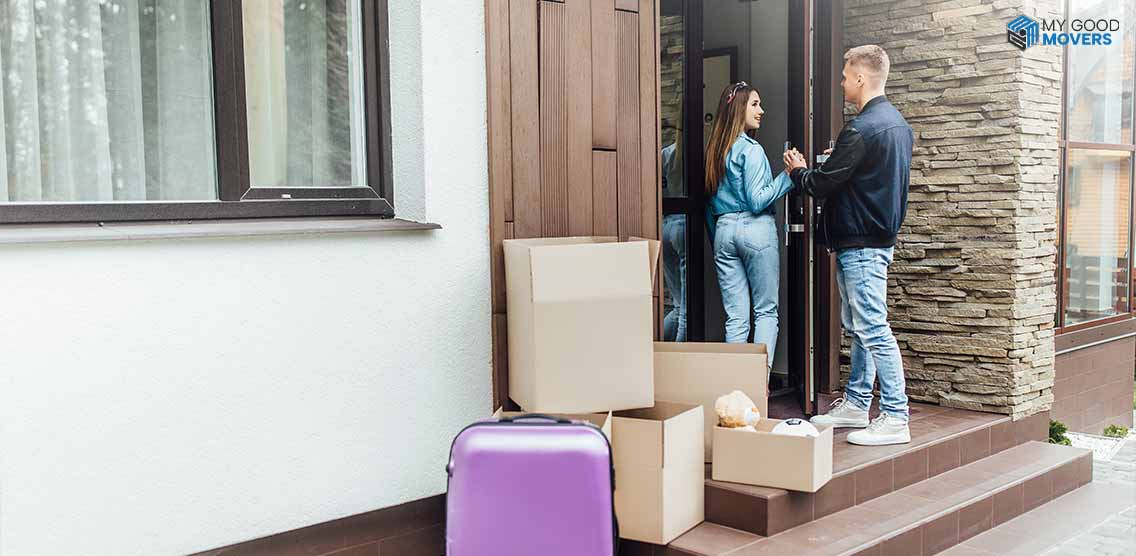Life begins at the end of your comfort zone.
This sentiment resonates deeply with the growing number of Americans choosing to go on the adventure of moving abroad.
As of 2024, over 8 million U.S. citizens have made the leap to live overseas, which is driven by aspirations for better career opportunities, cultural enrichment, and an enhanced quality of life.
The trend of relocating internationally has seen a significant uptick in recent years.
For instance, Portugal experienced a remarkable 122% increase in American residents, highlighting its appeal among U.S. expatriates.
Similarly, the United Kingdom welcomed over 11,500 Americans in the first half of 2023 alone, marking a 30% rise compared to the same period in 2022.
This surge isn't solely about seeking new experiences; practical factors play a crucial role. Countries like Mexico, which hosts approximately 1.6 million Americans, offer a lower cost of living and proximity to the U.S., making them attractive destinations.
Moreover, the political climate in the U.S. has prompted many to consider moving overseas.
Following recent elections, there has been a notable increase in Americans exploring relocation options, with political divisiveness cited as a significant motivator.
Moving abroad is difficult because it contains personal aspirations and practical considerations.
Let’s explore the essential steps and considerations to ensure a smooth transition to your new international home.
Curious about your moving costs? Fill out the details, and we’ll calculate them for you.

Why Do People Move Abroad?
Every year, millions of Americans pack their bags and start afresh overseas.
But why?
Career Opportunities: A chance to work for multinational companies or freelance in a global market.
Adventure and Lifestyle: Experiencing new cultures, cuisines, and climates is a dream for many.
Cost of Living: Believe it or not, some countries offer a much lower cost of living than the U.S.
Retirement: Enjoying golden years in picturesque locations like Portugal or Costa Rica.
According to the U.S. State Department, nearly 9 million Americans reside overseas as of 2023. This growing trend highlights the appeal of making an international leap.
The Ultimate Moving Abroad Checklist
Let’s dive into the nitty-gritty details.
A proper moving abroad checklist ensures you don’t miss crucial steps.
Research Your Destination
Before booking a one-way ticket, ask yourself:
· What’s the cost of living like?
· How’s the healthcare system?
· Are there cultural differences you need to prepare for?
For example, Scandinavian countries like Sweden rank high in quality of life, but their winters can be brutal if you're not a fan of the cold.
Organize Your Legal Documents
Passport: Ensure it’s valid for at least six months beyond your planned stay.
Visas: Each country has unique requirements. If you're moving abroad for work, research work visas or employer sponsorships.
Set Up Your Finances
Open a local bank account to avoid hefty international fees.
Notify your U.S. bank of your move to prevent fraud alerts.
Check the tax laws. (Yes, Uncle Sam might still expect you to file taxes even after relocating internationally.)
How to Move Abroad Without Breaking the Bank
Moving overseas can feel expensive, but it doesn’t have to drain your savings.
Here’s how to budget effectively:
Cost of Moving Overseas
Shipping belongings can cost anywhere from $1,500 to $10,000, depending on the distance and volume. Consider these options:
International moving companies like Allied or Mayflower offer competitive rates but compare prices.
Sell bulky items and travel light—it’s often cheaper to buy furniture abroad.
Save on Flights and Housing
Use flight comparison tools like Skyscanner to find the best deals.
Check temporary housing platforms like Airbnb until you find long-term accommodation.
Tips for Moving Overseas With Pets
If you’re asking, “How to move abroad with pets?” don’t worry—you’re not alone.
Millions of pet parents travel internationally each year.
Research Entry Requirements: Some countries, like Australia, have strict quarantine laws.
Health Certificates: Ensure your pet is vaccinated and has a microchip.
Airline Rules: Many airlines allow pets, but size restrictions often apply.
The Emotional Side of Moving Abroad
Let’s get real—moving to another country isn’t just about logistics. It’s an emotional journey, too.
· You’ll feel homesick. It’s natural.
· You might struggle with language barriers. But apps like Duolingo can help!
· Building a social circle takes time. Expats often rely on local communities and groups for support.
How to Find Work Abroad
It is essential to secure employment before relocating, but if you’re wondering how to move abroad without a job, here are some tips:
Research countries with flexible work visas. Germany and New Zealand offer job seekers options.
Look for remote work opportunities before you move.
Network through LinkedIn or expat job boards like Expatica.
Best Countries to Move Abroad
Here are some top picks for Americans:
| Country | Why It’s Great | Challenges |
|---|---|---|
| Canada | Close to the U.S., excellent healthcare | Cold winters |
| Portugal | Affordable cost of living, friendly expat community | Learning Portuguese |
| Japan | Fascinating culture, high safety | Complex work visa process |
| Costa Rica | Beautiful nature, affordable for retirees | Limited infrastructure |
Steps to Move Abroad from the U.S.
So, how do you actually do it? Follow these steps:
Decide Where to Go: Align your choice with your goals (work, lifestyle, adventure).
Handle the Legalities: Apply for the correct visa and ensure you have all the required documentation.
Sort Your Belongings: Ship only what’s necessary; declutter the rest.
Plan Your Arrival: Research neighborhoods, healthcare, and transportation options in advance.
Build a Safety Net: Keep emergency funds and maintain connections back home.
How Much Does Moving Abroad Cost?
Let's discuss various costs associated with an international move and make sure you are well-prepared for each expense.
Shipping Household Goods
Transporting your belongings overseas is a significant expense, influenced by factors such as volume, distance, and chosen shipping method.
Average Costs by Home Size and Destination
| Continent | 1-2 Bedroom Home | 3-4 Bedroom Home | 5-6 Bedroom Home |
|---|---|---|---|
| Europe | $3,500 - $7,000 | $8,000 - $12,000 | $11,000 - $17,000 |
| Asia | $3,900 - $8,200 | $8,500 - $13,000 | $12,000 - $17,500 |
| Australia | $4,000 - $9,000 | $8,700 - $12,500 | $13,000 - $18,000 |
| Africa | $4,500 - $10,000 | $9,000 - $15,000 | $14,000 - $18,500 |
| South Africa | $3,800 - $8,800 | $8,500 - $13,600 | $11,800 - $16,000 |
Shipping Methods
Sea Freight: More economical for large shipments but slower, with transit times ranging from a few weeks to over a month.
Air Freight: Faster delivery, typically within days, but at a higher cost.
Additional Considerations
Packing Services: Professional packing can add to costs but ensures the safety of your items.
Insurance: Protects against potential loss or damage during transit.
Shipping a Vehicle
If you're considering taking your car with you, vehicle shipping is another expense to account for.
| Service | Estimated Cost |
|---|---|
| Roll-on/Roll-off (RoRo) | $1,000 - $3,0000 |
| Container Shipping | $1,500 - $5,000 |
| Air Freight | $5,000 - $15,000 |
Factors Influencing Cost
Destination Country: Import taxes and duties vary.
Vehicle Size and Weight: Larger vehicles may incur higher fees.
Shipping Method: RoRo is generally cheaper than container shipping.
Visa and Immigration Fees
Securing the appropriate visa is essential and comes with associated costs.
| Visa Type | Estimated Cost |
|---|---|
| Tourist Visa | $50 - $200 |
| Work Visa | $100 - $500 |
| Residency Visa | $200 - $1,000 |
Note: Fees vary by country and visa type.
Additional Expenses
Legal Assistance: Hiring immigration lawyers can add to costs but may streamline the process.
Document Translation: Necessary for non-English documents.
Travel Expenses
Your journey to your new home involves several costs.
| Expense | Estimated Cost |
|---|---|
| One-way Flight Ticket | $500 - $1,500 |
| Temporary Lodging | $50 - $200 per night |
| Meals and Incidentals | $20 - $50 per day |
Tips to Save Cost on Travel Expenses
Book in Advance: Securing tickets early can lead to discounts.
Flexible Dates: Traveling during off-peak seasons may reduce costs.
Temporary Accommodation
Upon arrival, you might need temporary housing before settling permanently.
| Accommodation Type | Estimated Cost per Month |
|---|---|
| Budget Hotel | $1,500 - $3,000 |
| Serviced Apartment | $2,000 - $5,000 |
| Short-term Rental | $1,000 - $3,000 |
Considerations
Location: City centers are typically more expensive.
Duration: Longer stays might qualify for discounts.
Storage Services
If you can't move all belongings immediately, storage is an option.
| Storage Unit Size | Estimated Monthly Cost |
|---|---|
| Small (5x5 ft) | $60 |
| Medium (10x10 ft) | $140 |
| Large (10x20 ft) | $260 |
Additional Fees
Climate Control: Protects sensitive items but adds to cost.
Insurance: Covers potential damage or loss.
Miscellaneous Expenses
Other costs to consider include:
Customs Duties and Taxes: Varies by country and item value.
Pet Relocation: Can range from $1,000 to $4,000, depending on the pet's size and destination.
Healthcare: Securing international health insurance is advisable.
Total Estimated Cost
Keeping in mind all these factors, a typical international move can range from $5,000 to over $20,000.
Real-Life Stories
Let’s analyze some real-life examples to better understand the challenges people face when moving abroad.
Case Study 1: Jennifer and Kat's Retirement in France
Jennifer McGuire and Kat McAfee, retired sisters from the U.S., sought an affordable and enriching retirement.
Unable to find suitable options within the U.S., they turned their sights abroad and settled in Dordogne, France.
Challenges Faced
They faced several challenges, such as:
Real Estate Navigation: The French property market presented complexities, especially with language barriers and differing legal procedures.
Visa Acquisition: Securing the appropriate long-term visas requires proper paperwork and adherence to French immigration laws.
Pet Relocation: Transporting their seven cats involved understanding and complying with international pet travel regulations.
Cultural Adjustment: Adapting to a new culture, including language differences and local customs, posed initial challenges.
Strategies Employed
But they manage to overcome these challenges:
Professional Assistance: They enlisted a trustworthy local real estate agent to handle the housing market effectively.
Thorough Research: Diligent preparation and understanding of visa requirements facilitated a smoother immigration process.
Community Engagement: Integrating into local communities helped them acclimate and build a support network.
Their move resulted in a higher quality of life, with affordable healthcare and living costs, which supported their decision to retire abroad.
Case Study 2: Jeremy's Early Retirement in Colombia
Jeremy Teitelbaum, a 56-year-old retired lecturer from California, aimed to maximize his pension by relocating to Pereira, Colombia.
Challenges Faced:
He also faced several challenges, such as:
Financial Management: Adjusting to a new currency and banking system requires careful financial planning.
Healthcare Access: Understanding and integrating into Colombia's healthcare system was essential for his well-being.
Language Barrier: Limited proficiency in Spanish initially hindered daily interactions and administrative tasks.
Strategies Employed
So, what steps he took to overcome these challenges:
Cost Analysis: Jeremy assessed that his $3,423 monthly pension would comfortably cover expenses in Colombia, with rent for a one-bedroom apartment under $500.
Community Involvement: He volunteered to teach English and took Spanish classes, facilitating cultural integration and language acquisition.
Travel Opportunities: Embracing the region's offerings, he planned trips to destinations like Machu Picchu and Buenos Aires, enriching his retirement experience.
Jeremy's proactive approach allowed him to enjoy a fulfilling retirement abroad, and he also benefited from a lower cost of living and new cultural experiences.





